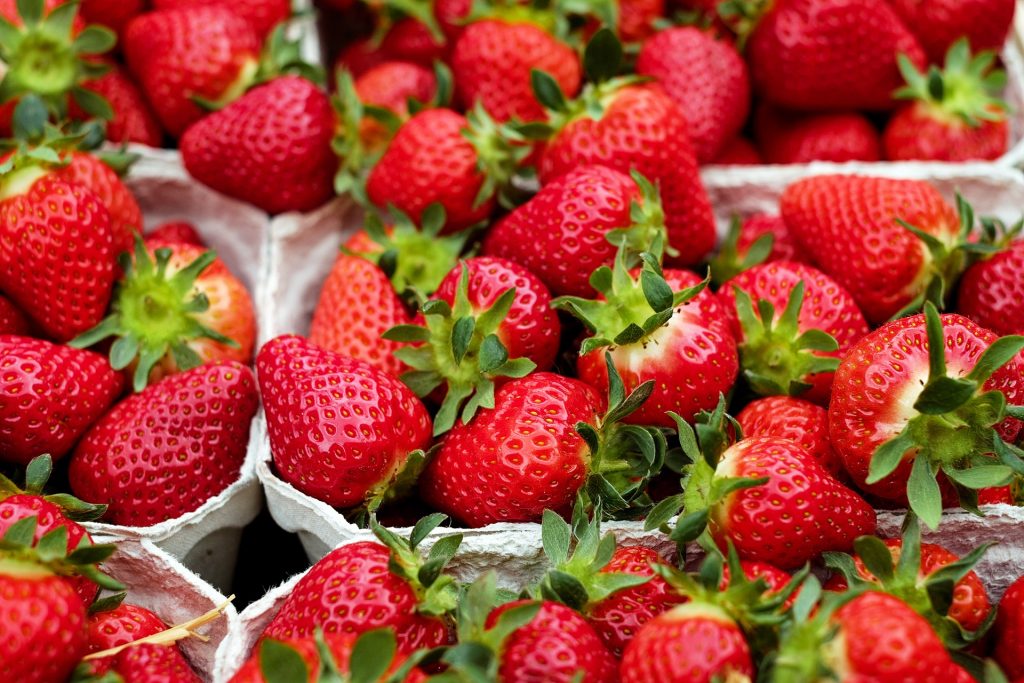The Environmental Working Group (EWG) has released its 2020 Dirty Dozen and Clean Fifteen List. You can use this list to help you decide how to eat fruits and vegetables organically in a reasonable way. It’s like Santa seeing who’s naughty and who’s nice. What’s clean (not much pesticide residue) and what’s dirty (high amounts of pesticide residue) are listed below. This information comes from tests done by the USDA.
EWG’s Dirty Dozen List
- Strawberries
- Spinach
- Kale
- Nectarines
- Apples
- Grapes
- Peaches
- Cherries
- Pears
- Tomatoes
- Celery
- Potatoes
Strawberries are once again at the top of this year’s Dirty Dozen list, taking first place for produce with the highest levels of pesticide residues. Ninety-nine percent of strawberries have pesticide residues, and EWG found up to 22 different pesticides on a single strawberry!
With superfoods spinach and kale (detecting up to 18 different pesticides) at the top of the list, these are ones you’ll definitely want to buy organic. And I buy them in large tub for not much more than regular produce. I use them daily in my smoothie.
Residues of at least one of three neonicotinoid pesticides banned in the European Union – imidacloprid, clothianidin and thiamethoxam – were found on more than half the samples of potatoes, spinach and lettuce tested in the United States.
Raisins didn’t qualify for the Dirty Dozen, since EWG doesn’t include processed foods in the list, but if they did, they would top the list by a mile. Ninety-nine percent of conventional raisins tested positive for at least two pesticides, including some that can harm kids’ developing brains! American kids under 15 eat about 208 million pounds of raisins each year. So clearly get your raisins organic!
EWG’s Clean Fifteen List
- Avocadoes
- Sweet corn*
- Pineapples
- Onions
- Papayas*
- Frozen Sweet Peas
- Eggplant
- Asparagus
- Cauliflower
- Cantaloupe
- Broccoli
- Mushrooms
- Cabbage
- Honeydew Melon
- Kiwi
Avocadoes topped the list again this year as the produce containing the least chemicals. More than 80 percent of pineapples, papayas, asparagus, onions and cabbages contained no pesticide residues. Since many restaurants do not provide organic produce, you can always order from this list and know you’re not biting into a lump of chemicals. I feel comfortable ordering asparagus, broccoli, and eggplant at restaurants. Note that if the sweet corn or papayas are GMO, they would not qualify for this clean list. GMO crops are generally loaded with pesticides.

Now that you know what’s naughty and what’s nice, be nice to your body!
Since strawberries are a favorite fruit in the summer and they unfortunately rank high in pesticides, where do you buy your strawberries that are low in pesticide residue? When I can’t find them organic, I buy them frozen and organic at Costco. Sometimes a local strawberry farm can tell you what pesticides they normally use.
For Your Health,
Ginny




